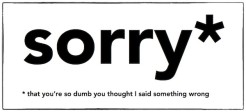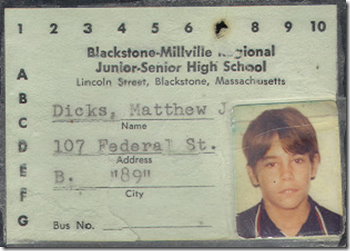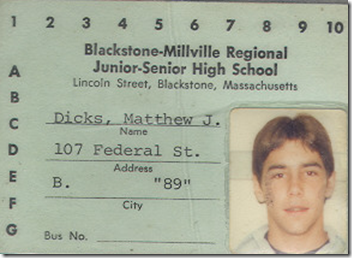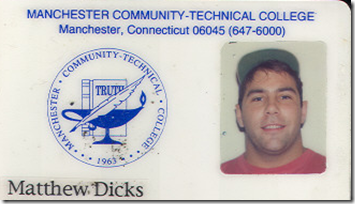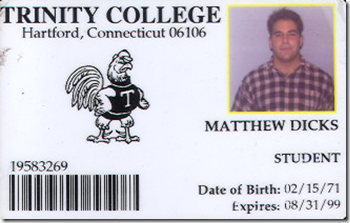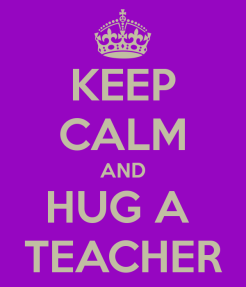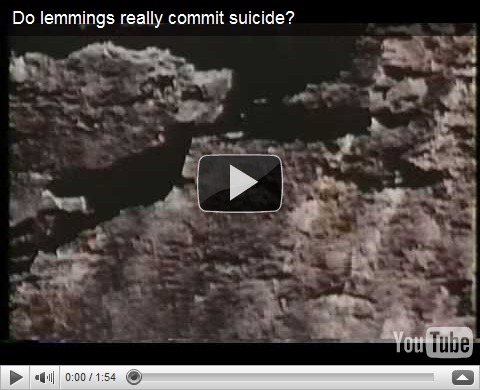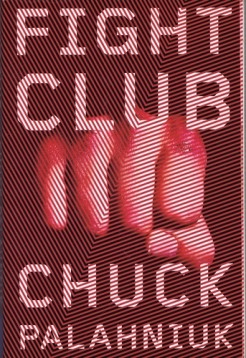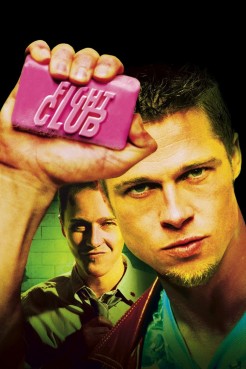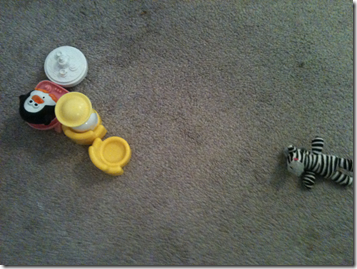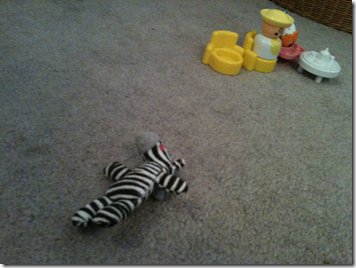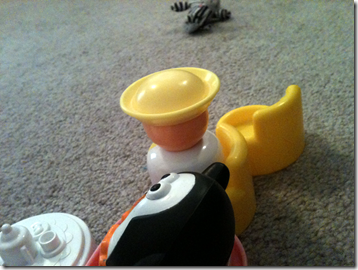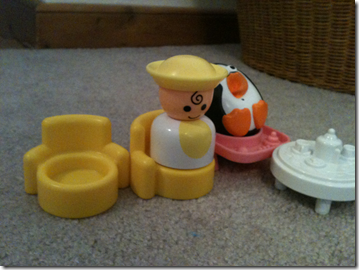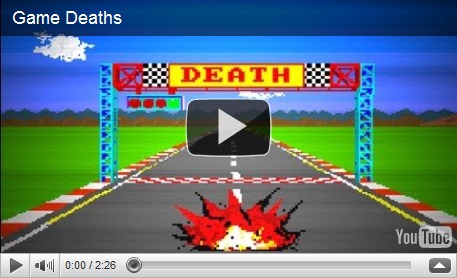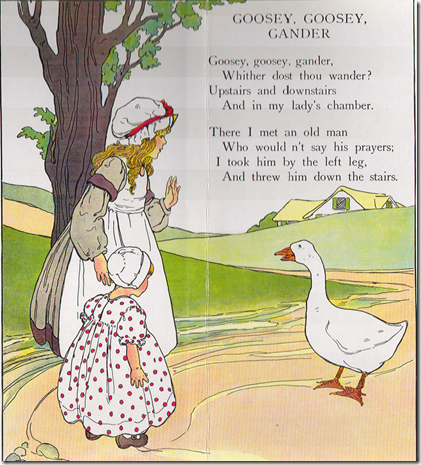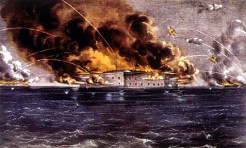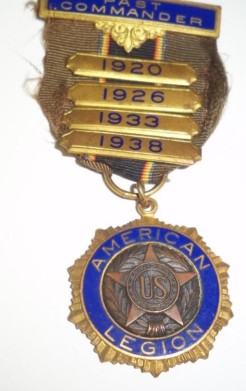Great moments in academia #3
/Last year I mentioned that I had three great academic moments while in college. The first pertained to a poem that I wrote.
The second (and perhaps my favorite) pertained to a Toni Morrison novel.
Here is the third.
My first English class at Trinity College was Feminist Literary Criticism. Four female students plus me sitting around a table with a middle aged female professor who scared the hell out of me.
Our first novel: To the Lighthouse by Virginia Woolf.
I have never liked Virginia Woolf’s work, an opinion that was treated as sacrilege by at least two of my English professors in college. Worse still, I had difficulty understanding Woolf’s work. Fresh off a three year run at Manchester Community College which culminated in membership on the USA Today Academic All American Team, I assumed that my string of academic successes with undoubtedly continue with my arrival at Trinity.
Then I began reading To the Lighthouse, and despite my best efforts, could not make sense of the book.
I think Wikipedia sums up the novel especially well:
To the Lighthouse is a landmark novel of high modernism. The text, centering on the Ramsay family and their visits to the Isle of Skye in Scotland between 1910 and 1920, skillfully manipulates temporality and psychological exploration.
To the Lighthouse follows and extends the tradition of modernist novelists like Marcel Proust and James Joyce, where the plot is secondary to philosophical introspection, and the prose can be winding and hard to follow. The novel includes little dialogue and almost no action; most of it is written as thoughts and observations. The novel recalls the power of childhood emotions and highlights the impermanence of adult relationships. Among the book's many tropes and themes are those of loss, subjectivity, and the problem of perception.”
Hard to follow. Little dialogue. Almost no action.
Who writes something like this?
Worse still, the size of the class prevented me from disappearing into the background. Sitting around a table twice a week with four hyperbolic feminists and a professor with a passion for Woolf, I knew that I was not going to be able to avoid reading the book without being noticed.
In fact, I nearly switched over to economics during my first week at Trinity as a result of this class, which might have been a more profitable decision in terms of future earnings but considerably less satisfying overall.
But I decided to stick with it, determined to one day be a writer. It was only through my knowledge of the Internet that I survived those first three weeks of Virginia Woolf.
It was 1996, and while the Internet was well on its way to becoming fairly ubiquitous, it was still in its infancy. Google did not yet exist. Wikipedia was years away. Search engines like Lycos and AltaVista were dominating the tiny search market.
Multinational corporations like Pepsi owned websites that looked like this:
McDonald’s looked like this:
For the most part, only nerds and geeks had a complete understanding of the Internet as it existed back then, and they were the only ones capable of fully harnessing its power.
I was one of those geeks.
So rather than reading the book, I skimmed the book, seeking out every pronoun in the text unrelated to the characters and setting and then using the Internet to learn everything about them. Woolf had filled her book with literary and historical references, and I became the guy who knew everything there was to know about these references.
To a teacher who had absolutely no understanding of the Internet and four young women whose knowledge was only a smidgen greater, it appeared as if I was spending hour upon hour in the library, researching the references that I was encountering as I read the book. I never spoke a word in those discussions about anything except my nuggets of literary research, and while I went on to read the rest of the assigned novels that semester and ultimately receive an A in the class, I managed to scrape by the first three weeks of my Trinity College experience thanks to my understanding of a burgeoning little network known as the Internet.
I have not attempted to read another Virginia Woolf novel since that class, but I stumbled upon the suicide letter that she wrote to her husband before she filled her pockets with stones and drowned herself in a river.
While her handwriting was atrocious, I was pleased to see that it was I was able to read her prose just fine. It’s actually a heart-wrenching letter that left me wondering how her husband managed to go on after reading it.
Virginia Woolf: crushing men’s spirits no matter what she is writing.

Tuesday. Dearest, I feel certain that I am going mad again. I feel we can’t go through another of those terrible times. And I shan’t recover this time. I begin to hear voices, and I can’t concentrate. So I am doing what seems the best thing to do. You have given me the greatest possible happiness. You have been in every way all that anyone could be. I don’t think two people could have been happier till this terrible disease came. I can’t fight any longer. I know that I am spoiling your life, that without me you could work. And you will I know. You see I can’t even write this properly. I can’t read. What I want to say is I owe all the happiness of my life to you. You have been entirely patient with me and incredibly good. I want to say that - everybody knows it. If anybody could have saved me it would have been you. Everything has gone from me but the certainty of your goodness. I can’t go on spoiling your life any longer.
I don’t think two people could have been happier than we have been. V.
Hug a teacher. Or at least send a note of thanks.
/Yesterday a former student stopped by my class to say hello. He stood awkwardly in front of me for a second until his friend told me that he wanted a hug. Nothing was wrong. He just hadn't seen me in a long time and missed me. And he had told his friend as much on the drive over.
Later in the day, I received an email from the same boy’s brother, a student who I once taught in second grade. He is in college now and wanted help on a paper that he was writing for English class.
Some students drift in and out of your class like ships in the night, never to be seen again, and others bless you with their continued presence in your life.
I was feeling very fortunate yesterday.
And it makes me sad to think that as a student, I was often one of those ships in the night. I didn’t love all my teachers, but I loved quite a few and never bothered to let them know.
I’ll make it a point of finding one this week and letting him or her know.
Lemmings unwillingly launched to the sea
/Lemmings don’t leap off cliffs and commit commit suicide as they migrate.
It turns out that the phrase “like lemmings to the sea” is nonsense.
The metaphor derives from the 1958 Academy Award winning Disney film White Wilderness, in which staged footage was shown with lemmings jumping to their death in a scene of faked mass migration.
A Canadian Broadcasting Corporation documentary revealed that the lemmings used for White Wilderness were actually flown from Hudson Bay to Calgary, where they did not jump off the cliff, but were in fact launched off the cliff using a turntable.
And thus “like lemmings to the sea” was created.
Lemmings flung into the sea and killed using a turntable?
You can’t make this stuff up.
Know thyself, or just read what festival organizers have to say about you instead
/My appearance at the upcoming Connecticut Book Festival has been finalized for those interested in attending. I will be speaking on Sunday from 10:00-11:00 AM at the University of Connecticut Greater Hartford Campus.
I’ll then be signing books from 11:00 AM -12:00 PM.

More details to follow, including the schedules for the other authors appearing.
In examining the The Connecticut Book Festival’s author website this evening, I notice that it describes me as:
“A writer and teacher who tends to deal with the quirky and/or rebellious individual, forced up against staid society.”
It’s so interesting (and enlightening) to hear someone else’s interpretation of my work. While this description may not fit my upcoming book, it certainly applies to my first two books, as well as my currently unpublished novel (CHICKEN SHACK).
And yet, had you asked me to describe some of the common themes throughout my books, I’m not sure if I would have said anything like this.
And yet if I were to ask my friends to describe some of the ideas that are important to me, the rejection of formality, convention and meaningless tradition would probably top the list.
The mind works in mysterious ways indeed.
One of those annoying “My daughter is perfection” posts. But the video is damn cute.
/Based upon my daughter’s behavior this evening, I suspect that she is vying for a new dollhouse or perhaps an extended bedtime. Clara is playing with her little people. They are spread throughout the living room, which she informed the dog tonight is now her room. Elysha tells her that it’s time for dinner. Without being asked, Clara spends five minutes putting away all of her little people before coming to the dinner table.
This was a first.
After dinner, Clara informs me that she needs a bath.
Elysha is already running the water into the bathtub upstairs.
And then she ends the day by reading Olivia Helps with Christmas to us in what can only be described as one of our proudest parental moments yet.
I might get her the dollhouse, but I’m not budging on the bedtime.
Movies that are better than the book: Part 2
/A quick update on yesterday’s post by the same name: It turns out that as I was writing my list, Jason Bailey at Flavorpill was making a list as well, and his is complete with video trailers, which makes my list look considerably less impressive.
Of course, his story can only be read by clicking through ten different pages, which I find incredibly annoying, so at least my post is easier to read.
We have some agreement in our lists as well.
My list, as you recall, included four films:
The Firm Forrest Gump Minority Report Fight Club
Yesterday I added Jaws to the list after several readers reminded me of the disparity between the book and the film (I actually re-read the book last summer). Specifically, there is a section in the book in which Ellen Brody is considering having an affair as her husband battles a man-eating shark, and I have found this plot line to be tedious and distracting. Spielberg apparently felt the same way, since it does not appear in the film.
Also, the ending of the book is convoluted and anticlimactic at best, with the shark being dragged underwater by the sinking Orca.
Granted, it’s slightly more realistic than blowing up the shark by shooting the tank of compressed oxygen in his mouth, but the chunks of shark splashing around Brody in the final scene of the movie are priceless. So Jaws is now on my list.
And in terms of the Flavorpill piece, we agree on The Firm and Jaws.
Bailey also includes the following films with corresponding books that I have not read:
The Princess Bride (an overrated film) The Graduate Dr. Strangelove One Flew Over the Cuckoos Nest (mentioned by readers yesterday) MASH The Godfather (several readers insisted should be on my list)
Bailey also includes the film High Fidelity on his list, which I thought was excellent, but I did not think it distinguished itself enough from the book in order to be declared superior.
He included the film Stand By Me, which is based upon Stephen King’s novella The Body from a book that also contains the novella upon which The Shawshank Redemption is based.
Quite a book. On film rights alone, it probably paid King enough to be set for life.
A friend also suggested The Shawshank Redemption to me, and while both Stand By Me and The Shawshank Redemption are outstanding films and quite possibly better than their literary counterparts, I did not feel that they were better enough to make my list.
But I might change my mind on this over time.
Especially The Shawshank Redemption. Damn that movie is good.
I suspect that the rest of the films on Bailey’s list are probably better than their literary counterparts, which leaves me to wonder if I should ever read the book. I've been told that One Flew Over the Cuckoos Nest and The Godfather are excellent novels, but if the film versions are better, what is a guy with a million books to read and a limited amount of time to do?
Waking the dead with a Datsun B-210
/My sister tweeted this: I've had my license for 20 years and I always thought that the larger vehicle always had the right of way. Apparently that's only true at sea.
This is not surprising.
I took my sister out for her first driving lesson when she was sixteen. We drove around the cemetery where our mother is buried today, the same cemetery where I learned to drive two years earlier.
Fifteen minutes into the lesson, she drove our mother's Datsun B-210 up an embankment and knocked over a headstone.
I never took her for another lesson, and have not tried to teach another person to drive since.
Movies that are better than the book
/I just finished reading Fight Club by Chuck Palahniuk. The movie, as you may know, is a classic. Genuinely great. And I feared that this would be one of those rare instances that the film is better than the book.
I almost didn’t read the book for this very reason. I bypassed it several times, choosing other books in favor of it, afraid of being disappointed.
But eventually I decided to read it, and I liked the book. I’m glad I read it. Unfortunately, I was right. The movie was much better.
Sacrilege, I know. But not unprecedented.
In my life, I have encountered three other films that were better than their literary counterparts.
The Firm by John Grisham. Though I loved the book, Grisham’s ending lacked the punch and surprise that the film provided. I was disappointed by the way the novel sort of petered out at the end, whereas the film captivated me until the final scene.
Forrest Gump by Winston Groom. The book was not good at all. In this case, I saw the film first and discovered much later on that it was based upon a book. How anyone could read that novel and create the Academy Award winning film based upon it is beyond me.
Minority Report by Philip Dick. The literary version is actually a short story, so it’s hard to fault the book for not measuring up to the movie, but it didn’t. Dick’s version of the story reads more like a detective story set in the future,whereas the film is a more provocative look at the future through the lens of a detective story.
And now Fight Club joins my list. Like The Firm, I liked the book quite a bit, but like The Firm, the ending of the film far surpasses the ending of the novel. I also think that there are moments in the book that suffer from the limitation of first person narration that the film is able to avoid.
But that’s it. Four films better than the books after a lifetime of reading.
It’s interesting to note that in three of the cases, I liked the book a lot but liked the film even more. There were also a bunch of instances in which I thought the movie was as good or almost as good as the book, but none were good enough to overtake the literary version of the story.
And now Charles Portis’s True Grit is sitting on my shelf, waiting to be read. And once again, I’m worried. I just saw the Coen brothers’ version of the film and thought it was remarkable. I’m hoping the novel measures up.
We’ll see.
Any movies-better-than-the-book that you would like to suggest?
Ousted zebra
/Elysha and I came upon this scene today, left behind by our daughter.
As you can see, Yellow Curly Cue and Bathtub Penguin each have seats at the table, but Stuffed Zebra has been thrown a considerable distance from his chair.
What did Stuffed Zebra do to deserve this kind of rejection?
Only Clara knows.
One-time Ronald McDonald Children’s Charities volunteer imposter
/I recently wrote a post about the American Legion-styled pins that I would like to wear denoting some of my past accomplishments and positions in life. I received quite a few questions about some of the items on the list, so I’ll be explaining them in more detail in the coming week. Today I am dealing with the proposed pin:
- One-time Ronald McDonald Children’s Charities volunteer imposter
I’ve actually written about this on a previous blog, but since more than one person asked about it and that original blog no longer exists on the Web, I thought I’d share it here for my new audience.
__________________________________________
When I was 19 years old, I was living on my own in every sense of the word.
My step-father had lost his job, invested my mother’s lifetime disability pension in a pyramid scheme, purchased two brand new cars in order to convey the image of success to his would-be customers, and lost it all within a year.
Eventually he stopped paying the mortgage and didn’t tell my mother until our childhood home was in foreclosure. Three weeks before they were to lose the house, he disappeared for a week of camping in Maine, leaving a note on the counter informing my mother of their financial situation and telling her that he wanted a divorce.
I had moved out two years earlier and was struggling to make it on my own, living with a friend who was attending college and living off-campus. My sister was still living at home, finishing her last year of high school and my mother was beginning to suffer from the early symptoms of adult-onset muscular dystrophy. Their situation was dire. A month after finding my step-father’s note, the two have moved to a run-down apartment in Woonsocket, RI, barely able to make ends meet.
Financially speaking, I was alone, taking care of myself, working without a safety net.
Forgive me the excessive back story, but I include it because I have told this story to people who simply cannot fathom not having family in their lives to lend support in a time of need. These are fortunate souls with parents and siblings and aunts and uncles who are intimately involved in their lives and willing and able to do almost anything to help them in a time of need.
This was simply not case for me at the time of this story. And it’s important in terms of the decisions I ultimately make.
And so one day in June of 1990, I drove up to Laconia, New Hampshire to spend the weekend with a girl. As I was driving home on Sunday afternoon, near the Massachusetts-New Hampshire border, I had a blow out. Not only did the tire go flat, but it came apart, throwing rubber all over the road. I was in the middle of no-man’s land, miles between exits, and the tire needed to be completely replaced.
To make a long story short, I eventually used the last of my cash to purchase a new tire, rolling it miles and miles down the highway and putting it on the car myself.
Quite an ordeal and a story in itself, but not for today.
As I climbed back in my car to complete my trip, I looked at the gas gauge and realized that it was almost empty and I was still about two hours from home.
This was in the days before cell phones, and even if I had one, there was no one who I could have called for help. My roommate and best friend, Bengi, was the only person in my life who could have brought me money to get home, but on this particular weekend, he was out of town, and I had no means of contacting him.
I was more than 100 miles from home and on my own. I needed to find a way to fill my gas tank.
I took the next exit off the highway, drove to the nearest gas station, and made the attendant an offer: my luggage, my watch, and my driver’s license in exchange for enough gas to get me home. And I’d pay him double when I returned with the money.
He refused.
At this point I didn’t even have enough fuel to make it to the next gas station. As I sat in my car, considering my non-existent options, my eyes fell upon my McDonald’s briefcase, complete with the golden arches symbol across the front. I was managing a McDonald’s in Milford, Massachusetts at the time and had left for New Hampshire from work the previous Friday. My briefcase and uniform were still sprawled across the back seat.
Donning the uniform and grabbing the briefcase, I walked from the gas station into the nearest neighborhood (quite a hike) and began going door-to-door, claiming to be collecting money for Ronald McDonald Children’s Charities.
At the first house, a lady gave me three dollars. At the second house, a woman gave me five dollars. At the third house, an older gentleman gave me a twenty dollar bill and told me about the wife that he had lost to cancer years before.
Another story for another day.
I couldn’t believe it. Two houses and $23.
Gas was about a dollar a gallon back then, and the money was more than I needed to get home.
As I hiked back to the station, I promised myself to more than replace the money that I had just acquired on behalf of the charity.
So for years, I would frequently drop a dollar into those collection containers whenever I visited a McDonald’s. Not counting the loose change that I also tossed in, I ran my total to $606 before I wrote about this story a few years ago on a now-defunct blog and decided that I could call it even with Ronald McDonald Children’s Charities.
A return of thirty times their initial, albeit stolen, investment seemed fair.
And telling the story after so many years of secrecy relieved me of a lot of the guilt associated with it.
I still toss coins into those collection containers from time to time, but not with the guilty conscience that I once had.
And that is how I become a one-time Ronald McDonald Children’s Charities volunteer imposter.
Throw that atheist down the stairs
/I had no idea that I was required to preview nursery rhymes before reading them to my daughter. But apparently so.
Last night I read the nursery rhyme below to my daughter and was horrified by the words coming out of my mouth.
The modern day translation to this nursery rhyme goes something like this:
Hey, look. A goose is in your house. Where is it going? Upstairs and downstairs and into your bedroom.
Oh, and while I was in your bedroom, following the goose, I found an atheist who refused to acknowledge God’s existence. So I grabbed him by the leg, dragged him down the hall, and flung him down the stairs.
Damn atheist. Serves him right.
The latest
/Some recent writing-related news that I thought I’d share:
_______________________
We sold the Korean rights to MEMOIRS OF AN IMAGINARY FRIEND this week, bringing the total number of languages that the book will be published in to eight! My super agent is simply super.
_______________________
The rock opera that my friend and collaborator, Andy Mayo, and I wrote has been approved for a staged reading at our local playhouse, complete with real actors, a real director and a real band.
This is the first step in a someday-maybe-full production of the show (and hopefully the sale of the script), and we couldn’t be more excited. We’re looking at weekends at the end of October or beginning of November for the reading, and once we lock up a date, I’ll be sure to share it. The reading will be open to the public, and there will be opportunities to comment on the script and music after the show via a moderated question-and-answer session.
_______________________
It looks as if I will be conducting writing classes at a local bookstore this summer, and this may include a class on finding a literary agent. I’ll keep you updated in the event that you are interested in attending.
_______________________
I have two appearances coming up in April and May.
I will be speaking at the the Books on the Nightstand retreat from April 8-10 in Manchester, Vermont. The registration for this event is closed, but if you love books and reading, you should consider downloading and listening to the Books on the Nightstand podcast, hosted by Ann Kingman and Michael Kindness. They are the organizers for the April retreat, and their knowledge of books and the publishing industry is second to none.
I will also be speaking at the Connecticut Book Festival on May 21-22 at the Greater Hartford Campus of the University of Connecticut. This event is open to the public and will include writers such as Wally Lamb, Jim Benn and Connecticut Poet Laureate Dick Allen.
_______________________
I think I have finally settled on my next book. Over the past month, I have been working on four different novels simultaneously, including a sequel to MEMOIRS OF AN IMAGINARY FRIEND. I was hoping that as I wrote, one story would assert itself as the next to be born and shine above the rest.
To be honest, this hasn’t really happened. All four stories are proceeding along nicely, but trying to write four books at the same time is making me crazy. So I’ve settled on one for now. My editor and publisher may request some input in terms of my next book at some point in the future, so my decision may change, but for now, I am officially working on THE PERFECT COMEBACK OF CAROLINE JACOBS, the story of a woman who decides to return to her hometown after more than twenty years in order to issue the perfect comeback to an insult that was directed at her in high school.
There’s much more to the story, of course, but that’s where the idea began.
Thanks as always for all of the support!
We never got to the war part of the Civil War
/The problem with American History class was that never got to the good stuff. Take the Civil War. I recall with blinding acuity the days and weeks that we spent studying the causes of the Civil War, many of which are now being debunked by modern day historians who now claim that the war was mostly about slavery.
Hour upon hour dedicated to the study of the economic disparity between the North and the South, the debate over state’s rights, the difference in cultures, and more. I remember sitting in my seat, listening to the lecture, praying that we would turn the page and finally see cannons firing, soldiers marching and battles erupting.
And then it did.
On April 12, 1861, Confederate forces fired on the federal troops at Fort Sumter. An artist’s rendering of the beginning of the battle was splashed across the page of my history book. I can still see it in my mind’s eye.
Three classes later, the war was over.
Three days.
Since high school, I have read entire books about the Battle of Gettysburg, the use of naval power in the war, Sherman’s march to the sea, the Battle of Chancellorsville, the Battle of Chickamauga, the changes in military leadership during the war and more.
All this and much, much more was covered in my high school history class in just three days.
I realize that there is a limit on the amount of time that a teacher has to teach the content, but if you want your students to be interested in history, you can’t strip out the best parts.
Yes, the causes of the Civil War are important, and yes, Reconstruction was an important time in our country’s history and in many way still impacts our nation today. These things must be learned.
But for a student, and especially a boy, to study the Civil War and not spend a day or two learning about the weapons used at the time and the tactics that led to the Union’s victory at the Battle of Gettysburg and the hunt for John Wilkes Booth following Lincoln’s assassination is doing a disservice to the student and to the study of history in general.
It’s conflict that makes history so compelling, and sometimes this conflict occurs on the battlefield. Not every student is going to spend his adult life reading about the intricacies of the war on his own, and especially not if the war has been sanitized and abbreviated in high school.
Leaving the guns and swords and blood out of history class is a mistake, and it’s one that I hope does not happen as often as I fear it might.
The dead writing about the dead
/The New York Times had their Elizabeth Taylor obituary ready for so long that the writer of the piece, Mel Gussow, has been dead for six years.

I’m not a Past Commander, but I’ve got some pin-worthy material of my own
/While judging an American Legion Oratorical Contest, I noticed a Legionnaire with a large, gold pin on his arm that read Past Commander. A pin denoting a previous station in life.
I like this idea a lot.
Rather than leaving behind previous accomplishments and positions of significance, why not plaster them across your arm or chest for all to see.
So I made a list of some of the pins that I might consider including on my arm. They include:
- Former Little League All Star
- Retired Dungeon Master
- Failed telemarketer
- Former corpse
- Former member of The National Grange
- Two-time lip syncing contest champion
- Former community theater actor
- Former high school shuttle run record holder
- One time criminal defendant
- Former lifeguard
- Former and failed motorcyclist
- Failed Habitat for Humanity volunteer
- Former founding and solo member of a high school chess club
- One-time Ronald McDonald Children’s Charities volunteer imposter
- Former third string middle school soccer goalie
- Former flutist, bassoonist and drummer (I also played clarinet, but what would that make me? A former clarineteer?)
- Ex-step-brother
- Former banker
- Former pole vaulter
- Past science fair cheat
- Former raccoon owner
- One time homeless person
- Former and currently wistful fire engine chaser
- Failed bus patrol volunteer (I was fired from the position in third grade)
- Former member of the Poison fan club
Granted, a few of these pins might get a little large, but I can always add them to my legs when my arms get full.
Post traumatic growth: Making bad guys more lovable and appreciated
/Martin Seligman, director of the Positive Psychology Center at the University of Pennsylvania, was speaking about post-traumatic growth on a recent edition of the Harvard Business Review Post-traumatic growth refers to positive psychological change experienced as a result of the struggle with highly challenging life circumstances. It is not simply a return to baseline from a period of suffering; instead it is an experience of improvement that for some persons is deeply profound.
Seligman is working with the US Army in an effort to reduce the rate of depression that soldiers experience following a traumatic battlefield incident. He has discovered that if a person is told that the possibility of post traumatic growth exists, the chances that the person will experience this growth instead of depression increase significantly.
In short, you just have to tell someone that traumatic experiences will make him or her a better people and it is more likely to happen.
Powerful stuff.
Throughout my life, I have often said that if given the chance, I would change very little about my past, despite the high degree of difficulty that I have faced.
And for the most part, I still believe this.
The challenges that I have faced have made me the person I am today, and they have allowed me to grow in the same way that Seligman describes. The multiple near-death experiences, the robbery, the arrest and trial for a crime I did not commit, the years of poverty, the homelessness, the anonymous, widespread attempt at character assassination and the traumatic childhood all resulted in the resiliency, confidence and strength that I enjoy today.
I would not be the teacher, author, husband and father that I am today without having faced and overcome these challenges.
I am happy with the course of my life.
But does this mean that I should wish the same upon my children?
I have watched friends with lives of relative ease crumble at the first sign of trouble.
I have watched colleagues collapse in the face of bitter struggle, having never faced a serious challenge before in their lives.
I have witnessed the lack of perspective and balance that a lifetime of relative security can bring.
No parents wishes ill upon their child, but it was only through pain and turmoil that I was able to become the person I am today.
Should I hope that Clara and Charlie experience struggles similar to mine?
Should I wish for the same post-traumatic growth that I experienced?
Can they become a strong, independent, self-reliant, resilient people if their path is free of turmoil?
I’m not sure.
Perhaps the best I can hope for her are challenges that will test their mettle and leave them stronger and more resilient but ultimately un-scarred.
The only thing I am certain about is the unexpected gratitude that I feel towards the forces who helped me become the person I am today:
The Universe, for placing unexpectedly deadly bees and surprisingly slippery roads in my path.
The Bourne police officer who decided that I was guilty before bothering to investigate.
The three armed men who tortured and terrorized me on dark night in 1993.
The anonymous cowards who attempted to ruin my career through slander and libel.
Even my parents, who forced me to grow up at an early age and take care of myself and my siblings.
Post-traumatic growth: It can make the most despicable people seem nearly angelic.
How to properly eat a Cadbury Crème Egg
/There is one and only one correct way to eat a Cadbury Crème Egg. Allow me to explain. In case you have been living under a rock for your entire life, the Cadbury Crème Egg is a brand of chocolate constructed of two parts: a thick, chocolate shell and the liquid, candy interior.

It is candy perfection, but it relies upon the consumer to ensure that this perfection is achieved.
The key to properly eating a Cadbury Crème Egg is to consume the egg in three equal bites. If done properly, this allows each bite to be equally and appropriately delicious.
This is the key.
In order to achieve three perfect bites, one must ensure that each bite contains equal portions of both candy components, for it is through the blending of these two components that perfection is attained.
To finish a Cadbury Crème Egg by consuming only the chocolaty tip of the egg, for example, would be to deny its potential perfection.
It would be both wasteful and inane.
It would be a tragedy.
This is why three is the ideal number of bites. Three bites allows for the requisite distribution of chocolate shell and liquid interior in each bite. This is essential. To consume the chocolate exterior without simultaneously ingesting the candy interior defeats the purpose of the candy and fundamentally debases the entire experience.
When in doubt, here is a good rule of thumb:
If eaten properly, the consumption of a Cadbury Crème Egg should result in at least three sticky fingers.
If your hands are clean upon the completion of a Cadbury Crème Egg, you have failed the candy.
You have denied yourself an opportunity at perfection.
